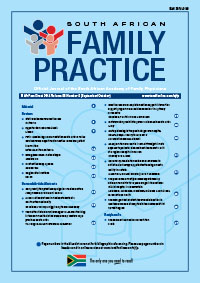Effectiveness of a Buddy intervention support programme for suicidal behavior in a primary care setting
Keywords:
Buddy support, prevention, suicidal behaviour
Abstract
Background: Suicidal behaviour is a major contributor to the health burden globally. Non-fatal suicidal behaviour may be 10–40 times more frequent than fatal suicidal behaviour. National responses to this crisis have been variable. This study was designed to evaluate and compare the effectiveness of a brief Buddy intervention support programme with the World Health Organization Multisite Intervention Study on Suicidal Behaviours (SUPRE-MISS) programme with regard to a cohort of suicide attempters. Method: Six hundred and eighty-eight suicide attempters were recruited into this randomised control study following admission and stabilisation in two community-based hospitals. They were randomised into either the SUPRE-MISS intervention group (control) or the Buddy intervention support group (experimental), and followed-up over 18 months. Data were analysed using SPSS® 19. Results: Three suicides occurred in the control group and one in the Buddy group. Collectively, 171 further suicide attempts were recorded during the 18 months, with 103 in the control group and 68 in the Buddy group. Differences between the two groups were statistically significant. Conclusion: The Buddy intervention was found to be effective and relevant in reducing suicidal behaviour in the local community. These findings have practical implications for implementation at primary care level in all communities.
Published
2015-01-30
Section
Original Research
By submitting manuscripts to SAFP, authors of original articles are assigning copyright to the South African Academy of Family Physicians. Copyright of review articles are assigned to the Publisher, Medpharm Publications (Pty) Ltd, unless otherwise specified. Authors may use their own work after publication without written permission, provided they acknowledge the original source. Individuals and academic institutions may freely copy and distribute articles published in SAFP for educational and research purposes without obtaining permission.

